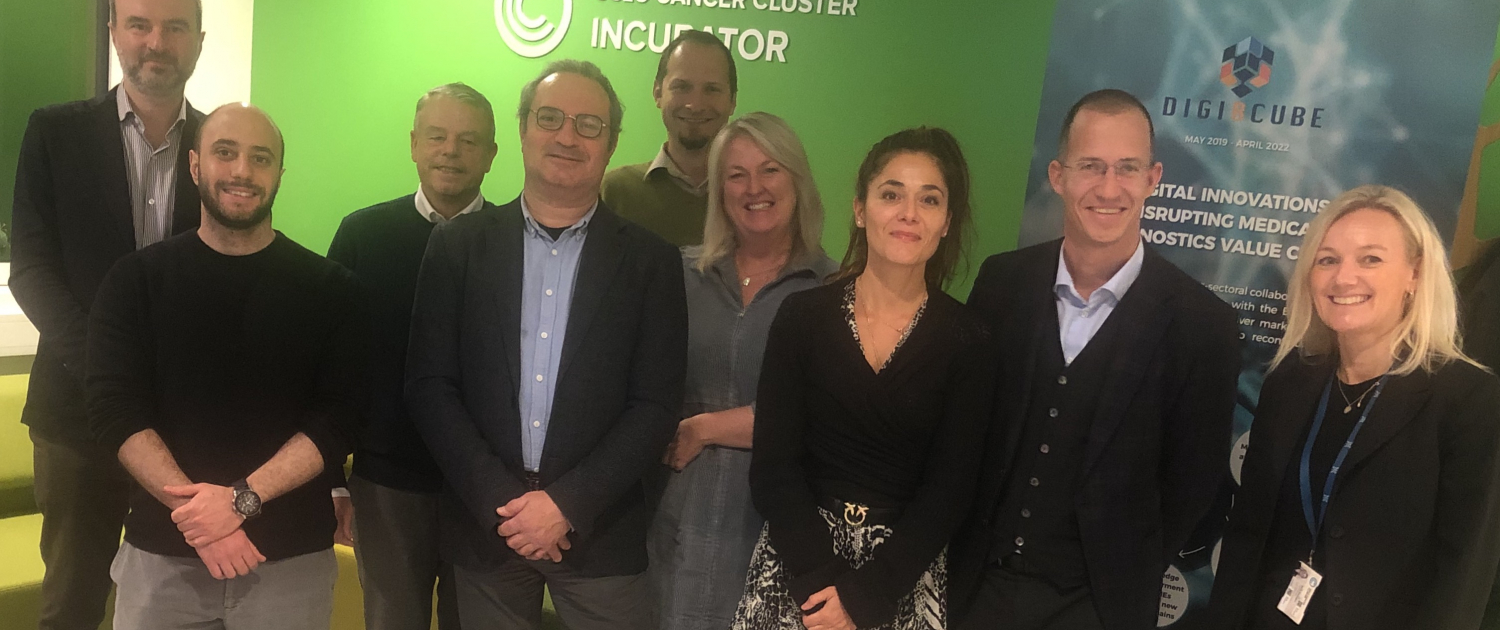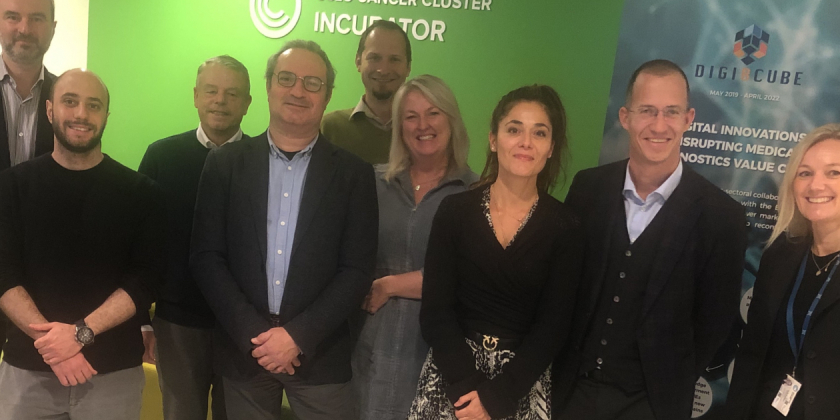DIGI-B-CUBE consortium meets in Oslo

DIGI-B-CUBE aims to unlock the cross-sectoral collaborative potential of small and medium-sized companies.
As a project funded under the European Union´s Horizon 2020 Programme, it aims to unlock this potential by combining novel digital technologies with bioimaging, biosensing, and biobanking.
DIGI-B-CUBE was established with Oslo Cancer Cluster as the project coordinator in 2019. The project supports the development and delivery of new market-sensitive disruptive technologies and key digital innovations to reconfigure patient-centered diagnostics towards a Health Economy 4.0.
Read more on the DIGI-B-CUBE webpage.
Meeting in Oslo
Last week, a consortium consisting of eight partners met at the Oslo Cancer Cluster Innovation Park, both in person and virtually. Milena Stoyanova and Gerry Renders were present from the Executive Agency (EISMEA) established by the European Commission. They highlighted the importance of supporting and empowering small and medium-sized companies (SMEs) in their innovation activities.
DIGI-B-CUBE has funded a total of 55 projects, resulting in 2,5 MEUR provided directly to companies to boost the development of disruptive tech solutions and health tech innovations across Europe. One of these projects is CEREBRI.
Treating migraines
“We develop easy-to-use and scientifically proven technology to help people predict and prevent brain disorders,” said Cathrine Heuch, CEO of Nordic Brain Tech.
She explained that 14.7% of the population is affected by migraine, the most common neurological disorder costing the European economy €50 billion annually. Migraine results in reduced quality of life and limited daily performance in work and social life.
According to Heuch, there is a pressing need for treatments without side effects, that are affordable and more accessible than today’s alternatives, which mainly consist of medications associated with limited efficacy and negative side effects.
CEREBRI digital treatment
Nordic Brain Tech has in joint cooperation with i3tex and Thorgate developed a project called CEREBRI to optimize treatment software and a finger biosensor. CEREBRI is a digital treatment for preventing migraine, solving the demand for treatment without negative side effects.
With two wireless sensors and a smartphone app, patients can perform regular biofeedback training that has the potential to reduce migraine frequency by 50%. This enables treatment from the comfort of your own home, and virtual care from a physician, with potential cost savings of ~60% compared to biofeedback given in clinics.
CEREBRI can significantly increase a migraine patient’s quality of life and reduce costs to sick leave for businesses and health care providers, according to the project.
The companies in DIGI-B-CUBE receive funding and mentoring/coaching in the project. This week, Cathrine Heuch met Milena Stoyanova from EISMEA and her mentor in DIGI-B-CUBE, Astrid Green, at Oslo Cancer Clusters offices.

From the left: Astrid Green, Milena Stoyanova, Cathrine Heuch.
Read more about the CEREBRI project on the DIGI-B-CUBE webpage






